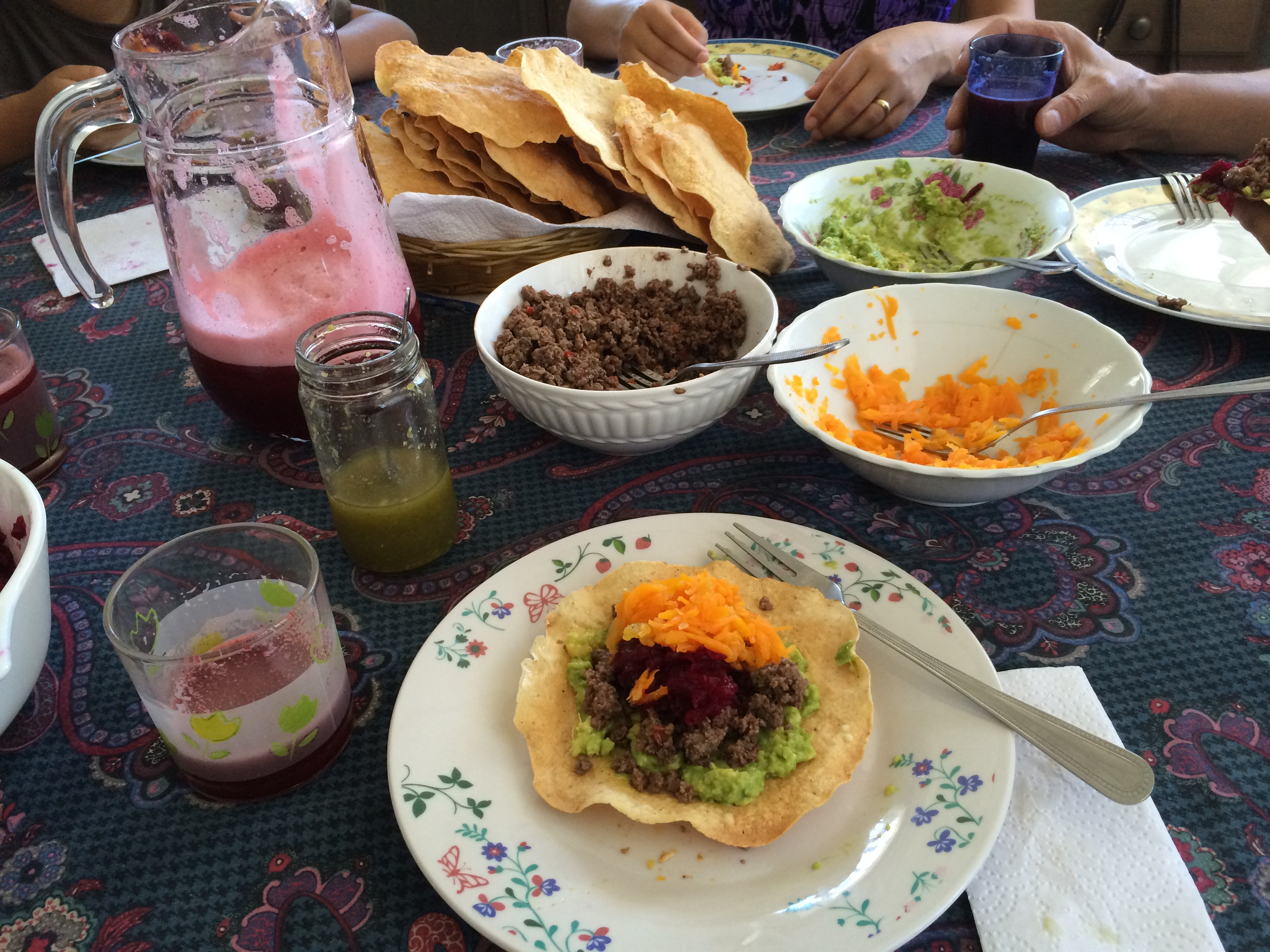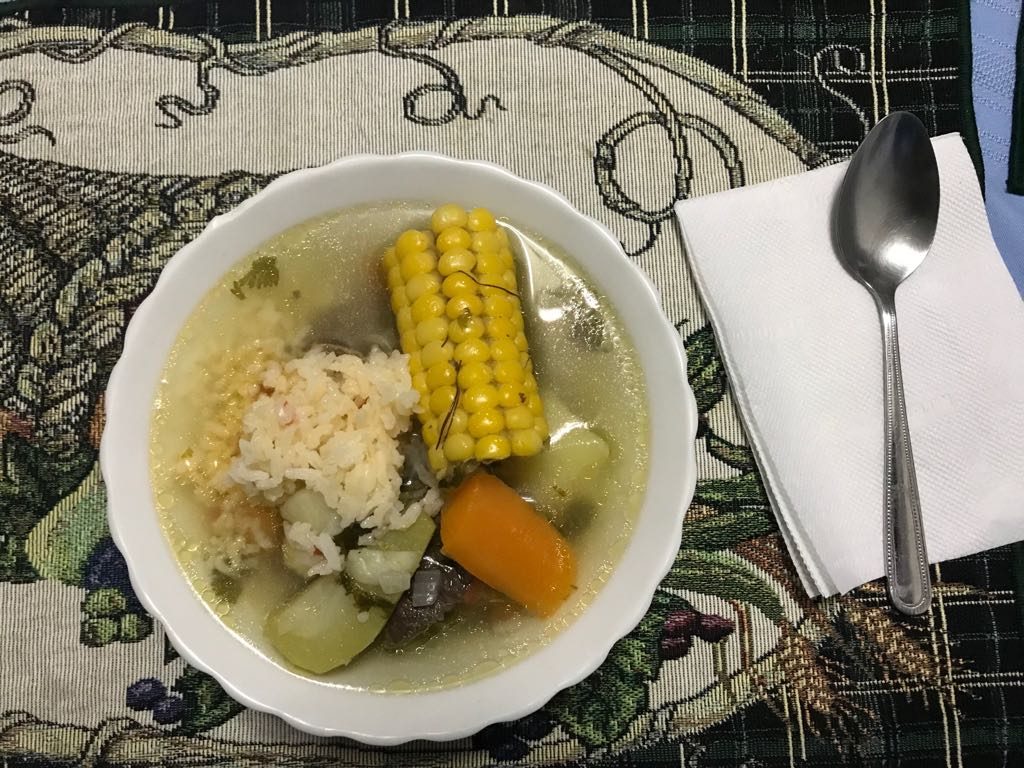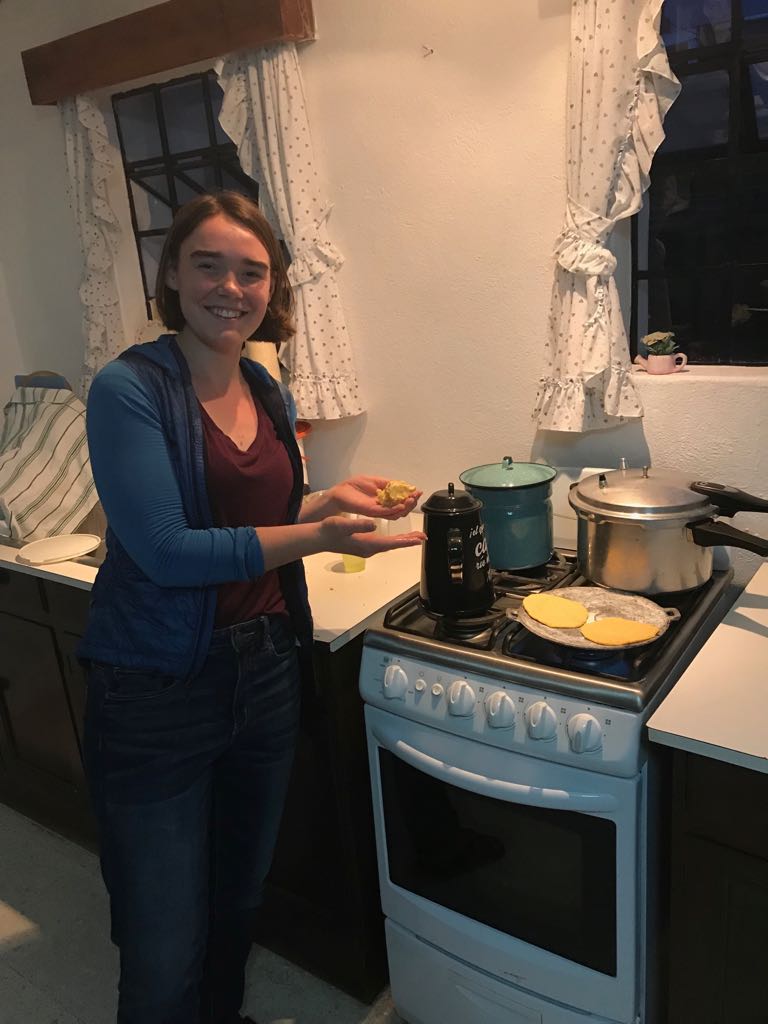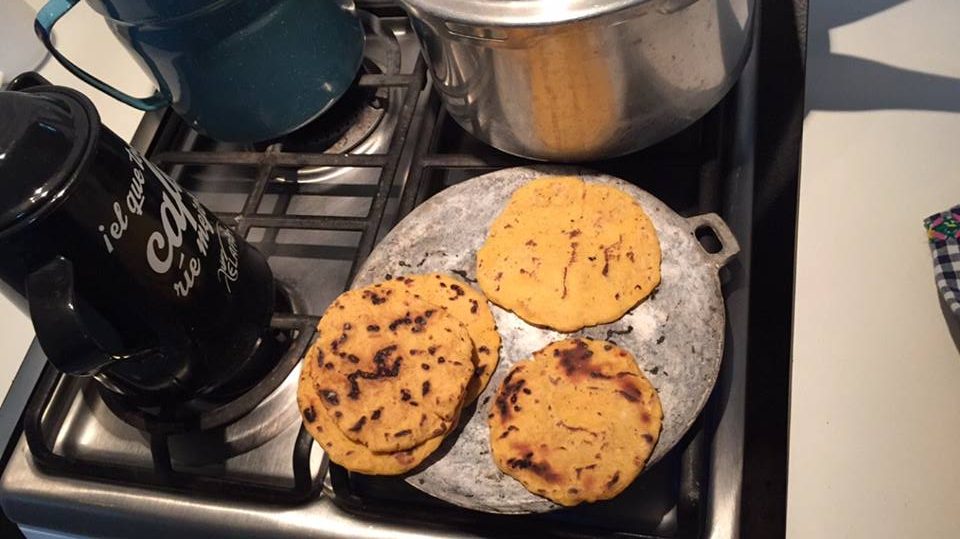My initial plan during these two months was to cook for myself. I did not want to be a burden on Marco’s family, and I figured that I could use the summer to improve my culinary skills beyond my college cafeteria hacks. As of now, I have not used the Mission House kitchen once. I am eating three meals a day with Marco, Mimi, and Alan. I don’t want to get in the way, but I really enjoy our conversations. It is nice to have a substitute family close buy. I cannot complain about the food either. It seems like everyday Alan claims the meal to be one of his favorites. He admitted one dinner that he has 100 favorites when it comes to his mom’s cooking. “La especialiad” in the household is butter spread upon homemade fluffy tortillas and a sprinkle of salt. This specialty is a constant for every meal. I like to use it to soak up the seasoned vegetables and meats, various sauces, soft beans, and fresh produce. Yes, life is not too shabby.




Tonight, Mimi and I were left alone after dinner. Marco attended church and Alan went to bed. She made me a cup of Chamomile tea before we both relaxed for the evening. It has been a pleasure to get to know Mimi. Like myself, she played basketball in high school and plays a little guitar, though realistically doesn’t have the time in her day to practice. Her main consumption of time is her son. While she used to do more work for HFPF, she has now focused her attention to raising and schooling Alan. He is an incredibly smart and an overall good kid, who absolutely loves socialization. When work teams come, Alan will disappear for the entire day to hang out and speak english with the adults! With his quick mind and Mimi’s gift for teaching, Alan has excelled quickly past his peers in school. The other day, he scored a 100 on his end of the month progress exam. In addition to Alan, Mimi cooks three meals a day for her family, remains very dedicated to her church and the Barillas community, and is responsible to complete HFPF’s monthly financial report. While she receives help from their housekeeper Elena in the mornings, Mimi keeps the gears turning in the household.
Before Barillas, she grew up in a more urban part of Guatemala known as San Pedro. At age eighteen, she moved to Guatemala city, where she continued to study and work. At the time, she had a fascination with Germany and hoped to live their eventually. In fact, she had set plans to study abroad in the country, when Marco asked her to move to Barillas with him. As a young woman open to the adventures that life brings, Mimi switched gears to begin a new life fourteen hours away from all she was familiar with. At first the change was overwhelming. Her work with HFPF was especially hard. Barillas was heavily affected by the Civil War and visiting nearby villages who had lost all their trust in support from outsiders was heartbraking. She had not realized just how bad the situation was for her fellow Guatemalans. While growing up, the war was only news and stories. She hadn’t encountered the first hand devastation that it had caused. She had pride for her country and the life she had made for herself. How could these impoverished and abused people live under the same flag? It is estimated that 200,000 Guatemalans were killed and another half million displaced. Many of these people were indigenous populations from the Northwestern Highland region. Barillas alone had 5 nearby villages massacred. As if the physical impact was not enough, the mental shock and broken trust was a whole other obstacle to overcome. Rural communities were left fragile and extremely protective of what they had left.
Many communities showed hostility towards HFPF when they initially entered. They were accustomed to broken promises and people who were not who they said they were. Mimi could not understand why these people would not want to accept their helping hands. It cost her to see the mental effects that War brought. She told me of an incident where she was in a community waiting while Marco talked to the village leader. In the middle of their conversation, Marco heard one of the villagers remark “It is better they just leave. If they don’t, then we will take them out.” Threatened for his life, family and team, Marco asked the leader if it was even safe for them to be here. The leader was able to talk to the rest of the community and explain that this time it was a different case and there was not the need to be so defensive. If this was the reaction that people had, It is hard to imagine what types of confrontations they encountered in the past.
With time, HFPF gained traction and respect from rural areas. Villages began to see neighboring communities grow with the support of HFPF behind them. Leaders began approaching the organization for help, instead of HFPF reaching out to them. This Marco considered was a better way. Mimi learned techniques to earn trust and friendship from the women. She tried to learn some of their Mayan dialect Kanjobal, in hopes to connect on a more personal level. Even if her language skills were not very strong, the women were amused and appreciative of her attempts.
After fifteen years in Barillas, Mimi now feels like it is her home. She plays a big role in her church community, has a happy and prospering family, and has provided Alan with a healthy and consistent upbringing. While at the table, she reflected on the possibility of living in Germany, a country she still has yet to visit. Her life could have gone a very different direction, but she and Marco feel fortunate that they are no longer ignorant about their country and the world. They have confronted and worked alongside the reality no matter how hard it may be. She still is somewhat unsure of what the future brings, but puts her faith in God to guide her family in the right direction.
We probably spent 90 minutes chatting tonight. I am sure she had more productive things to do, but I appreciate the time she gave to talk, for it was all new information that helped me appreciate the wholistic approach HFPF uses when working with rural communities. While schools, stoves, and water tanks are extremely important, the trust and respect of the people always comes first. If this is damaged, it can have lasting effects already enhanced the country’s violent history.
I want to make sure that while I am here, I don’t forget the stories that people take time to share with me. They help to clarify my outsiders perspective on Guatemala. The United States was not innocent throughout Guatemala’s Civil war, and I want to better understand exactly why these areas face the conditions they do today.
